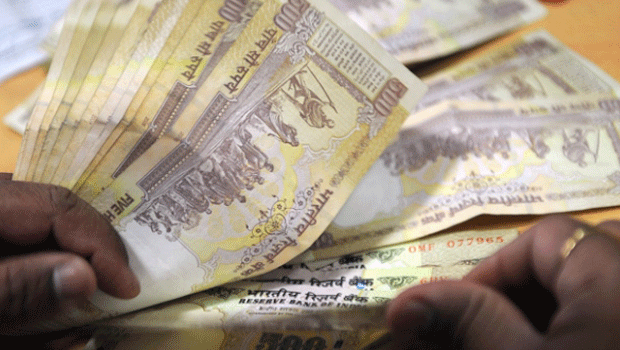
Muscat: State Bank of India offices in Muscat will not accept any INR500 and INR1,000 notes, a senior official said.
Read here: Money exchanges in Oman stop accepting 500 and 1000 rupee bank notes
“We will not accept any INR500 and INR1,000,” Piyus Kumar, Chief Executive Officer at SBI Muscat, said.
In a notice, the bank has also said that so far they have received no information regarding exchanging of cancelled notes of INR500 and INR1,000 at SBI Muscat.
“Please keep checking our website www.sbioman.com for any updates regarding the same,” the notice added. The bank had issued the notice as they were indundated with at least 500 calls soon after the government of India announced the demonitization of the banknotes.
On Tuesday night, money changers in Muscat said that they have already stopped accepting INR500 and INR1000 notes.
“Since the currency has been demonetized, we cannot accept the notes here in Oman,” Tonny George Alexander, Director of Oman UAE Exchange told Times of Oman.
In a shock address, Indian Prime Minister Narendra Modi announced on Tuesday night that INR500 and INR1000 notes would have no value as of midnight last night, while attempting to assure Indians that "your money is still your money."
Modi also ordered the 48-hour closure of all banks and post offices in the country and asked Indians to be patient as the new rules took effect.
He also promised to roll out new notes so that genuine, "clean" money could replace the illicit money that he said fuels corruption andis responsible for India's poor transparency rating in global markets.
“People holding notes of INR500 and INR1,000 can deposit them in their banks and post office accounts from November 10 until December 30,” Modi said in his speech adding that those couldn’t exchange INR500 and INR1,000 by December 30 for some reason, can change them tillMarch 31, 2017 by furnishing ID proof.
According to Indian government, there are 16.5 billion INR500 notes and 6.7 billion INR1,000 notes in circulation now.
Philip Koshy, general manager at Modern Exchange, said that they have stopped accepting the notes.
“As we are outside India, it would be difficult for us to accept the notes,” Philip added.
Meanwhile, Rahul Sourav, relationship manager at State Bank of Travancore (SBT) in Oman at the Global Money Exchange, said till they get any further notice, they won’t accept any INR500 and INR1,000 notes.
“We can’t accept the notes now. Will wait till further notice,” the official added.
Meanwhile, many expatriates were panicked hearing the news.
“I have a few notes with me which I brought here while coming back last week after holidays. Now, I can’t do anything with it. It’s a shock...,” Sunil Kumar K, a businessman in Muscat, said.
Anitha Johnson, a homemaker in Muscat, also said that she is worried after hearing the decision.
“This is a surprise. I had some notes worth OMR30. Now, what will I do? ,” Anitha added.
Indian President on his twitter account welcomed the bold step of the Indian government and tweeted that the move will help unearth unaccounted money and counterfeit currency.
In his speech, Modi also said that on November 9 and in some places on November 10 in India, ATMs will not work.
“Respite for people for the initial 72 hours, government hospitals will accept old INR500 and INR1,000 notes till November 11 midnight. Petrol pumps and retail outlets will have to keep every single entry of cash transaction with INR500 and INR1,000 notes till November 11,” Modi added.
Modi also added that notes in lower denomination of INR100, INR50, INR20, INR10, INR5, INR2 and INR1 and all coins will continue to be valid.
He also announced that new notes of INR2,000 and INR500 will be introduced